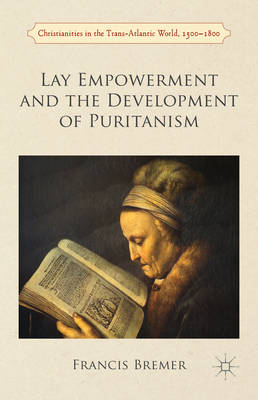Christianities in the Trans-Atlantic World, 1500-1800
1 total work
Lay Empowerment and the Development of Puritanism
Published 30 March 2015
Looking at the rise, spread, and decline of puritanism in England and New England, this book focuses on the role of godly men and women as opposed to the clergy. It focuses on the spiritist or mystical element of puritanism and explores the role of family devotions, lay conferences, prophesying and other means by which the laity influenced puritan belief and practice. The book examines the central role of the laity in building the Congregational system of New England churches. It explores the role of religious discussions around the campfires of the New Model Army in shaping England's religious direction, and looks as well at the radical street preachers of London (including women) during England's Civil Wars. The latter chapters focus on the clerical and magisterial reaction to lay power and the attempt to enhance the role of the clergy within churches and of clerical associations over individual congregations.
